Imantodes cenchoa
—
Common Blunt-headed Tree Snake
Also known as:
Blunt-headed Tree Snake, Blunthead Tree Snake, Common Blunthead Tree Snake, Chunk-headed Toad Snake
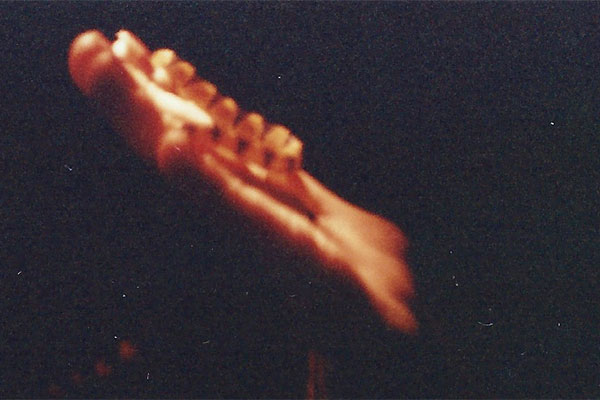
I found this small snake by flashlight on a night walk through the rainforest around Pook's Hill lodge. It was spread out across the surface of a single large leaf. My silly little point-and-shoot did not have a flash strong enough to capture the image, but I did get this super craptastic picture of someone shining their flashlight on someone else who lifted the snake from the leaf. Nice, eh?
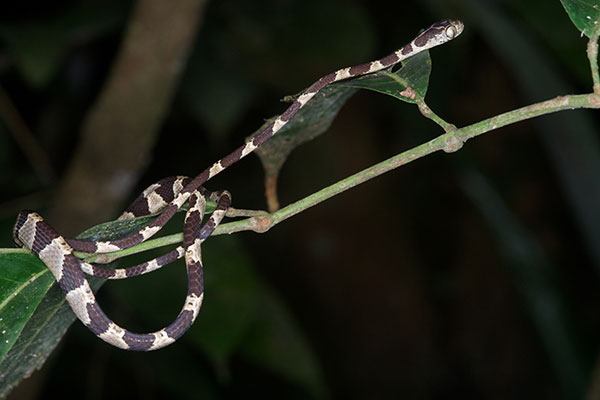
Many years later, I finally got to see more of these amazing arboreal snakes. The distance between branches they can span with their incredibly thin bodies is really a sight to see.
Here is a complete list of the herps I saw in the wild on my 2013 MT Amazon Expeditions trip.
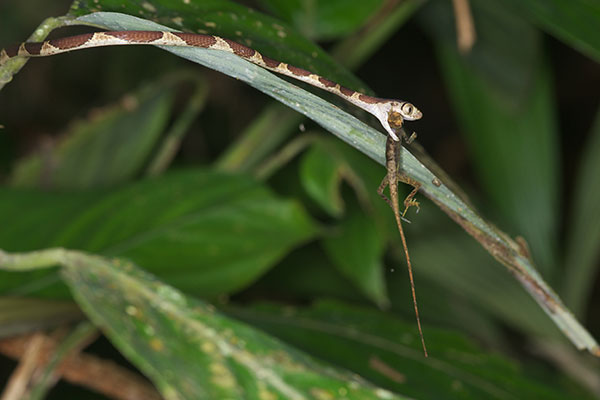
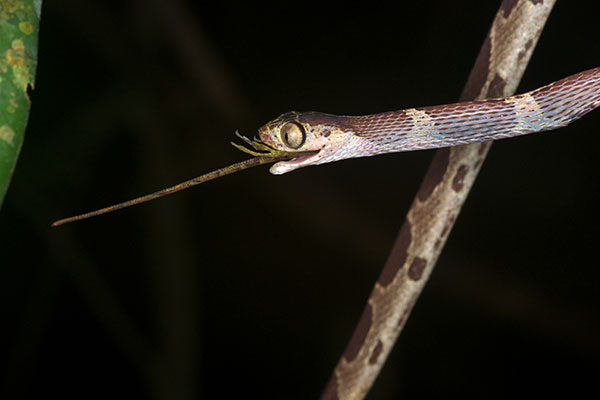
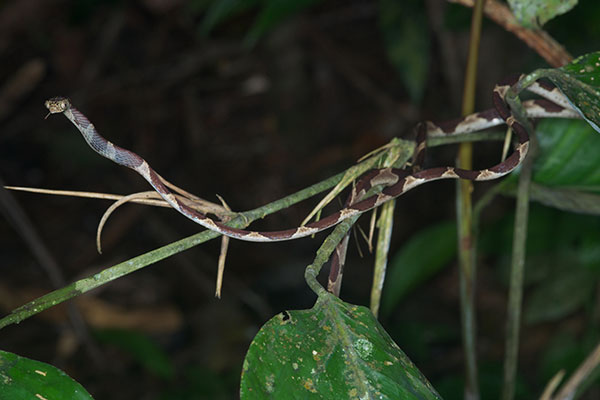
These snakes specialize in snacking on sleeping lizards, and we were lucky to stumble across this one just as it was starting to devour a hapless Anolis trachyderma. It finished its meal intently, paying no attention to the nearby people and cameras.
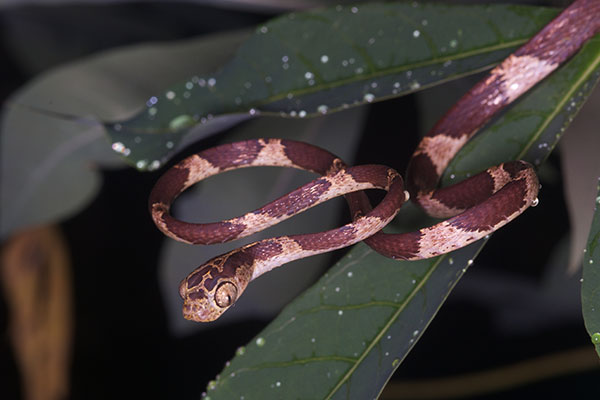
Here's one more Imantodes cenchoa that was keeping an eye out for tasty sleeping lizards around the pond at the Santa Cruz field station.
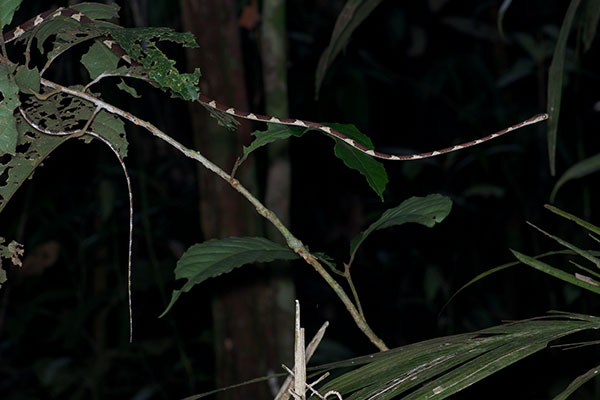
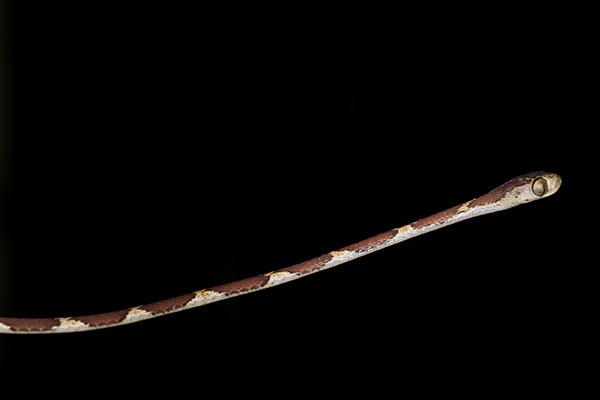
A year later, and the Imantodes cenchoa were once again the most commonly seen snakes in the rainforest. On our first night, we saw three, though I only got photos of this one.
Here is a complete list of the herps I saw in the wild on my 2014 MT Amazon Expeditions trip.
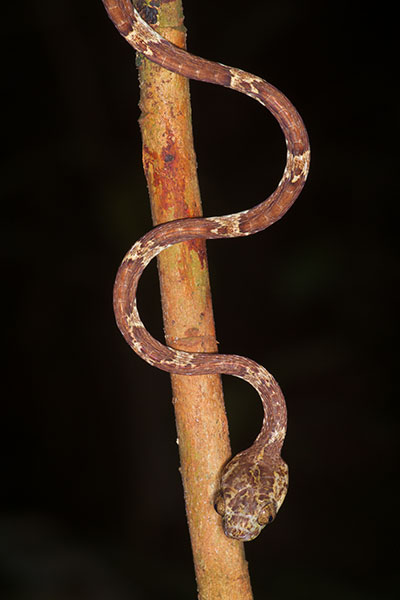
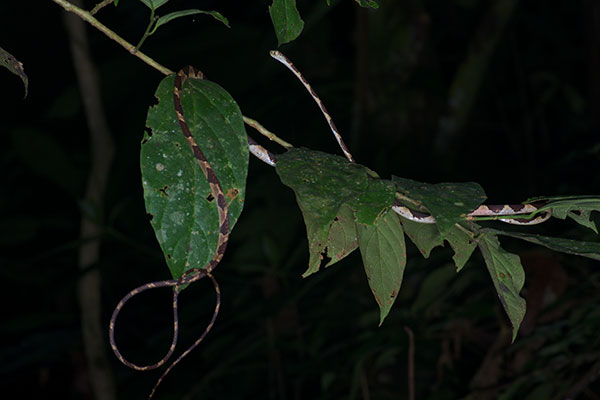
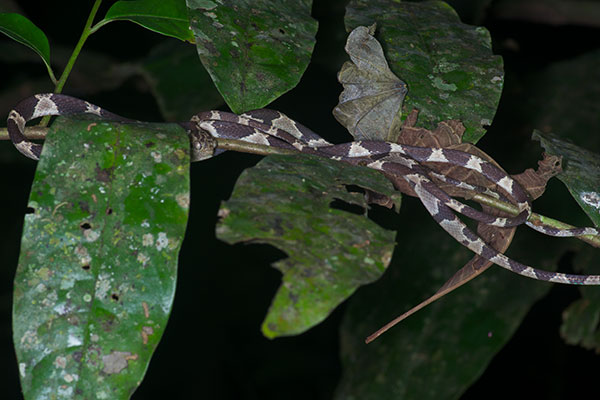
These are three of the six Imantodes cenchoa that our group found in one night, along with five other snakes. I was suspicious that the first one might be Imantodes lentiferus instead, but Dick Bartlett set me straight.
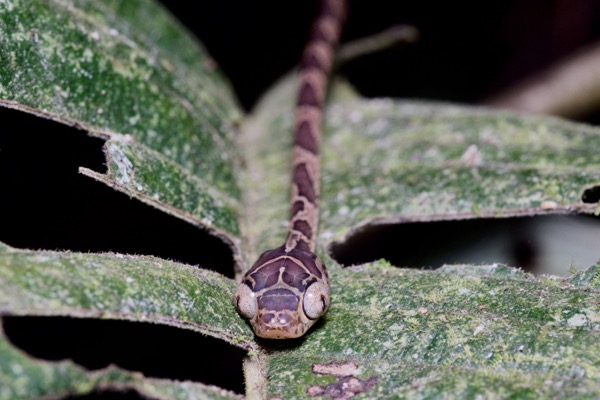
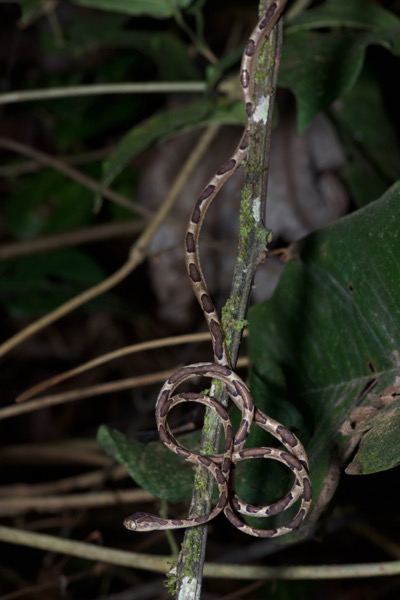
Panama had been in an unusually dry season when we spent a night hiking on Pipeline Road looking for nocturnal critters. We saw only one snake, this slender, bug-eyed Imantodes.
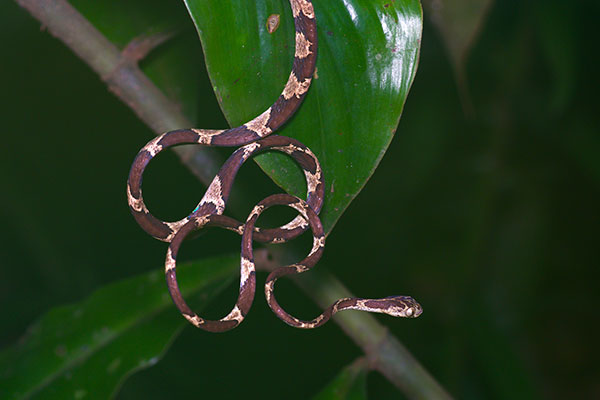
These slender snakes have extremely strong muscles that enable them to stretch remarkable distances from one branch to another. You can see in this photo how casually the snake holds much of its body in midair.
My Travelogues and Trip Lists page includes a complete list of the herps I saw in the wild on my 2016 MT Amazon Expeditions trip.
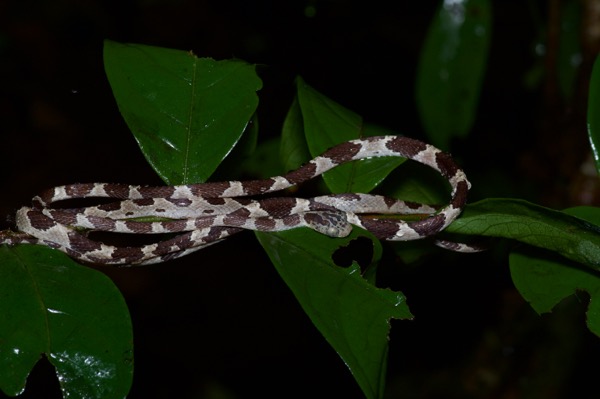
Most of the Imantodes I've seen at night have been on the (very slow) move, prowling around for tasty lizard snacks. This one hadn't uncurled from its daytime sleeping position yet, probably because it was still sopping wet from a big ol' tropical rainstorm. This was Imantodes cenchoa number twenty-one for me in three trips to Peru.
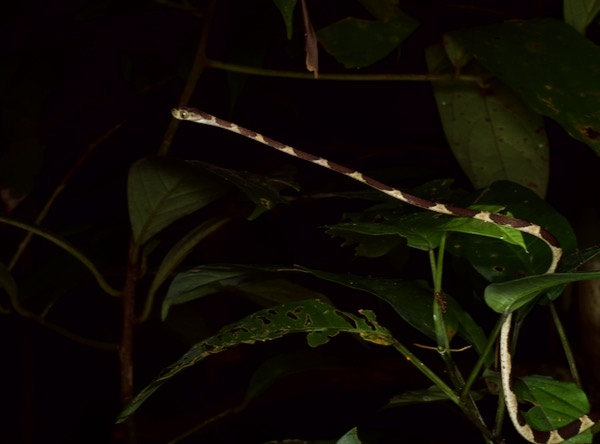
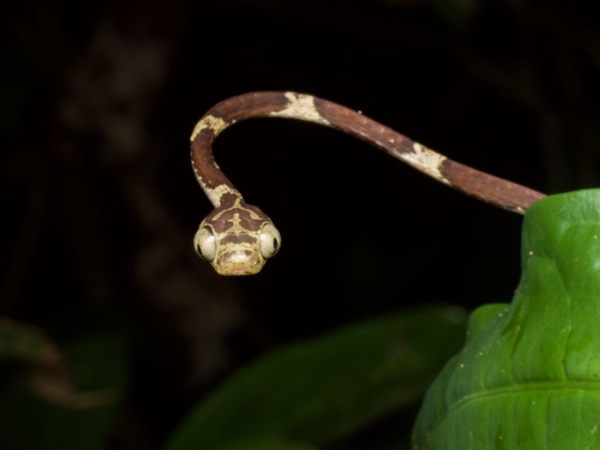
For some reason we did not find the usual plethora of Imantodes this year, but at least we weren't skunked.
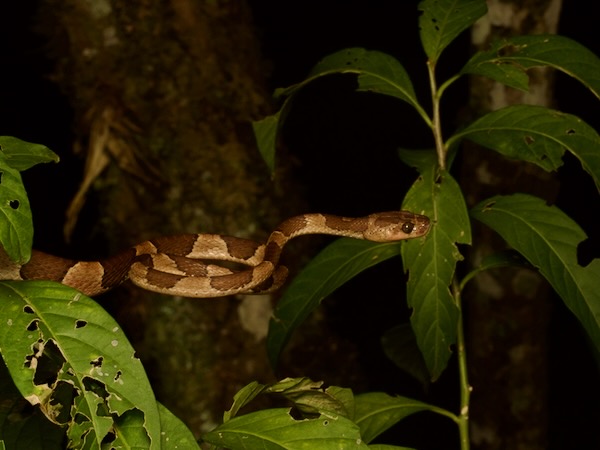
My first Guatemalan Imantodes cenchoa, soon to be the first of many.
Here is a list of all the reptiles and frogs I saw on this trip to Guatemala.
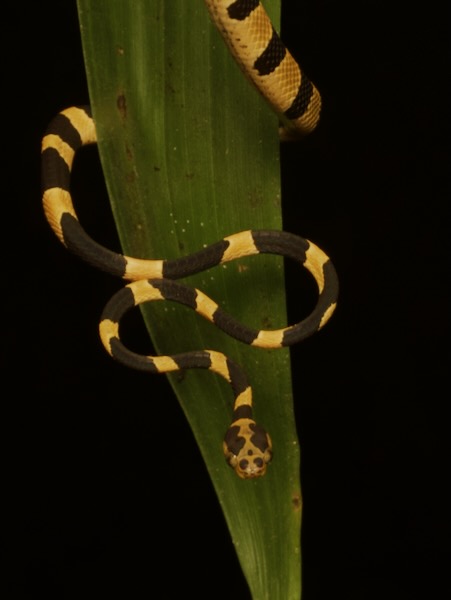
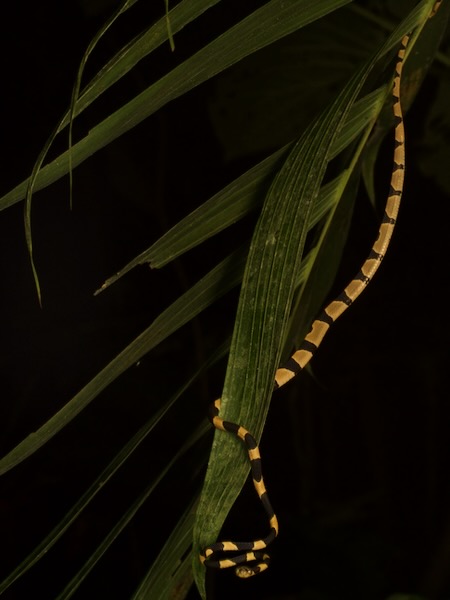
This is easily the most beautiful individual of this species that I've seen. It was also the smallest, with the possible exception of my very first one.
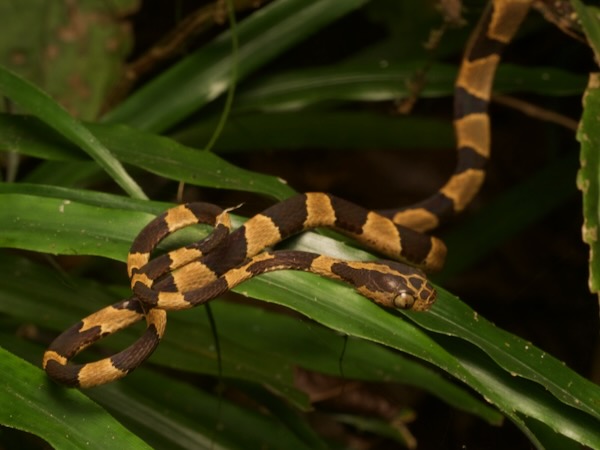
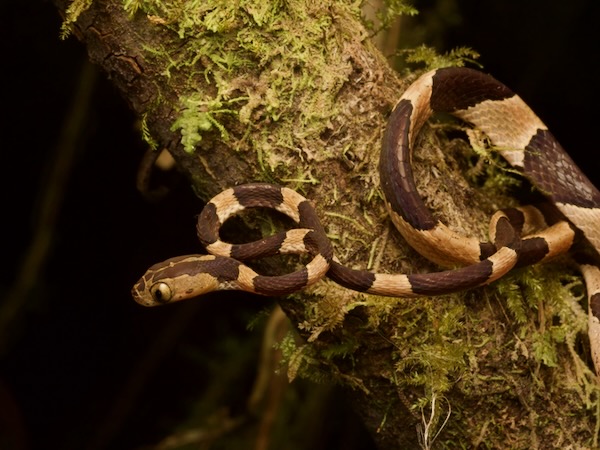
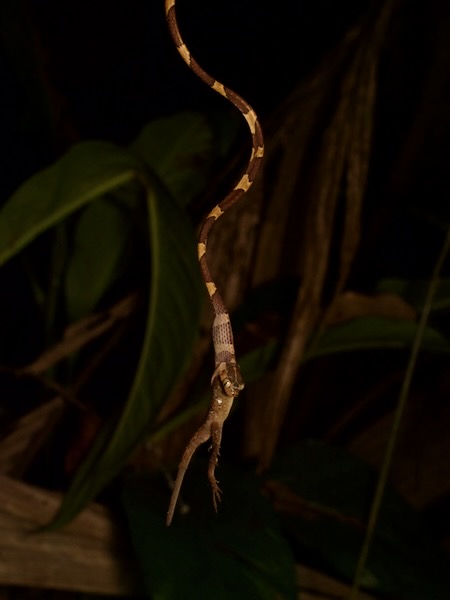
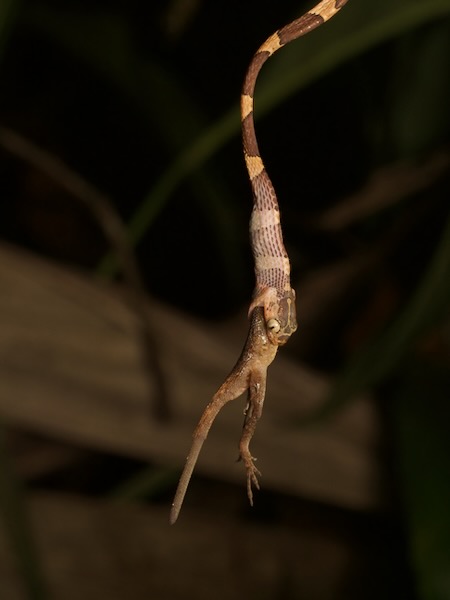
At this location we found three Imantodes cenchoa in one evening, and the last one was chowing down on an Anolis uniformis.
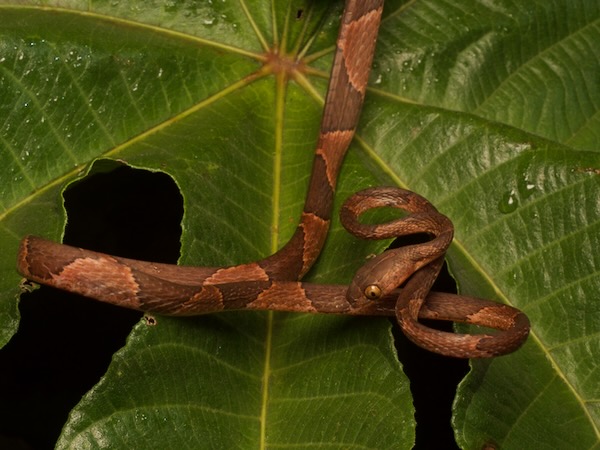
I'm pretty sure this one is contemplating how best to tie itself into a knot.
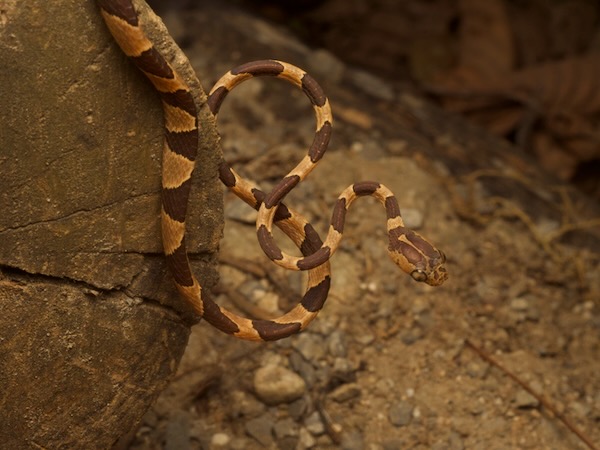
This was the only snake I saw at this reserve, but that's mostly due to the fact that I had some sort of probably food-borne illness that left me so weak that I had to give up after about half an hour.

I love the way these slender snakes can hold such a large amount of their body in mid air.
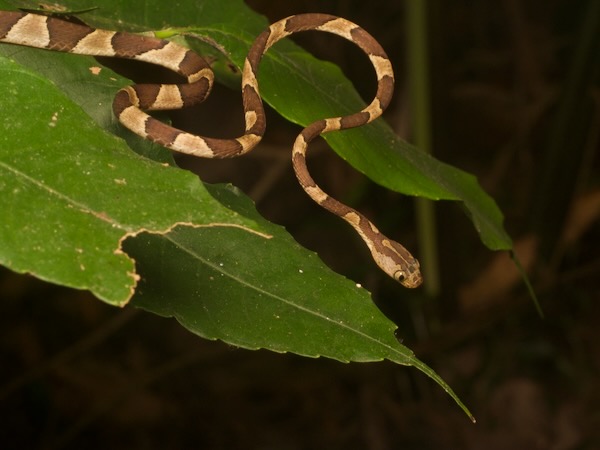
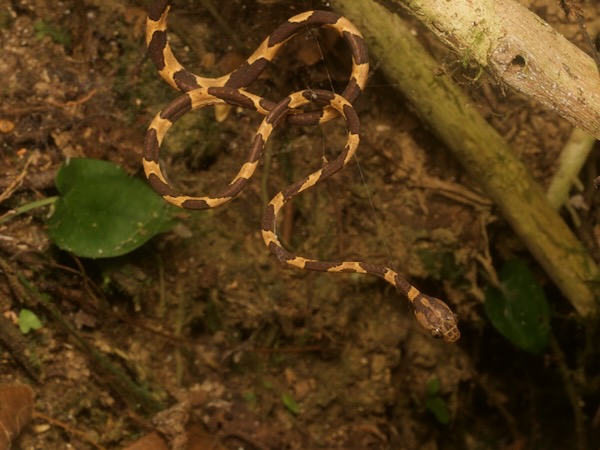
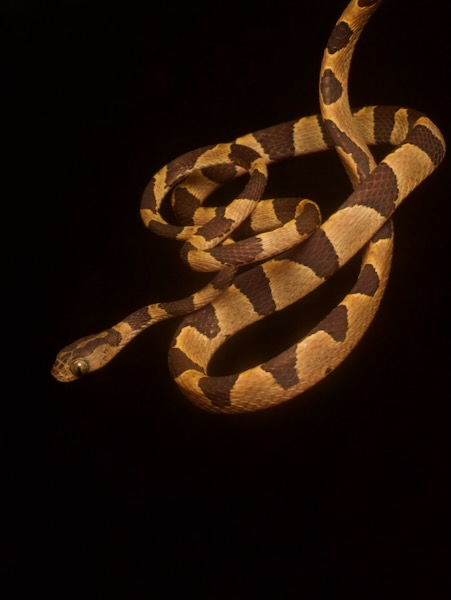
Near the end of this Guatemala trip, we found three more Imantodes cenchoa in one night. As you might have guessed by now, this was the snake species that we saw most often on this trip. The most commonly observed snake in the country overall is probably the Red Coffee Snake (Ninia sebae), but we saw none of those, despite putting in significant effort.
Online references:
- Imantodes cenchoa account on The Reptile Database
Printed references:
- Bartlett, R.D., and Bartlett, P. 2003. Reptiles and Amphibians of the Amazon: An Ecotourist's Guide
- Campbell, J. A. 1998. Amphibians and Reptiles of Northern Guatemala, the Yucatán, and Belize
- Dixon, J. R. and Soini, P. 1986. The Reptiles of the Upper Amazon Basin, Iquitos Region, Peru
- Duellman, W.E. 2005. Cusco Amazónico: The Lives of Amphibians and Reptiles in an Amazonian Rainforest
- Garel, T., Matola, S. 1995. A Field Guide to the Snakes of Belize
- Lee, J. C. 2000. A Field Guide to the Amphibians and Reptiles of the Maya World: The Lowlands of Mexico, Northern Guatemala, and Belize
- Lee, J. C. 1996. The Amphibians and Reptiles of the Yucatán Peninsula
- Stafford, P. J., Meyer, J. R. 2000. A Guide to the Reptiles of Belize